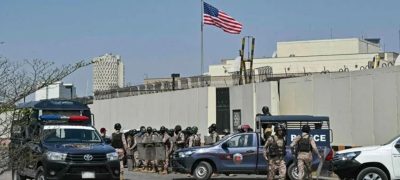Former Prime Minister Imran Khan and his wife, Bushra Bibi, were convicted on January 13, 2024, in the £190 million case, with Imran receiving a 14-year sentence and Bushra a 7-year term. The ruling was delivered in Rawalpindi’s Adiala Jail, where Imran had been held for over a year.
Along with the prison sentences, both were fined—Rs1 million for Imran and Rs500,000 for Bushra. Failure to pay the fines would result in additional jail time for both.
Read more: Bushra Bibi Expresses Distrust in Legal System During Bail Hearing
The court also ordered the forfeiture of the Al-Qadir University Project Trust’s property, connected to the “sham trust,” to the federal government, as per the National Accountability Ordinance, 1999. Following the verdict, Bushra Bibi was immediately arrested in the courtroom. The verdict came after several delays, including adjournments and missed hearings.
In response to the conviction, Pakistan Tehreek-e-Insaf (PTI) leaders announced their intention to appeal, claiming the decision was politically motivated. Opposition figures, including Omar Ayub and Shibli Faraz, criticized the ruling, questioning the link between the funds involved and PTI leadership, and calling for justice for their party leaders. Faraz argued that Imran and Bushra were being penalized for founding Al-Qadir University, a project aimed at promoting Islamic teachings.
The £190 million case revolves around an alleged transfer of Rs50 billion (approximately £190 million) by the UK’s National Crime Agency (NCA) to the Pakistani government. The funds, meant for the Supreme Court, were handled by Imran Khan during his tenure as Prime Minister in 2019, but the agreement’s details were kept confidential.
The National Accountability Bureau (NAB) claims that Khan and Bushra received land intended for an educational project in exchange for the settlement. The trial also involved multiple key figures as witnesses, and after 38 hearings, the court convicted the couple.
The case’s complexity, involving multiple accused and witnesses, led to frequent delays, but the verdict marks a significant point in Pakistan’s legal and political landscape.









